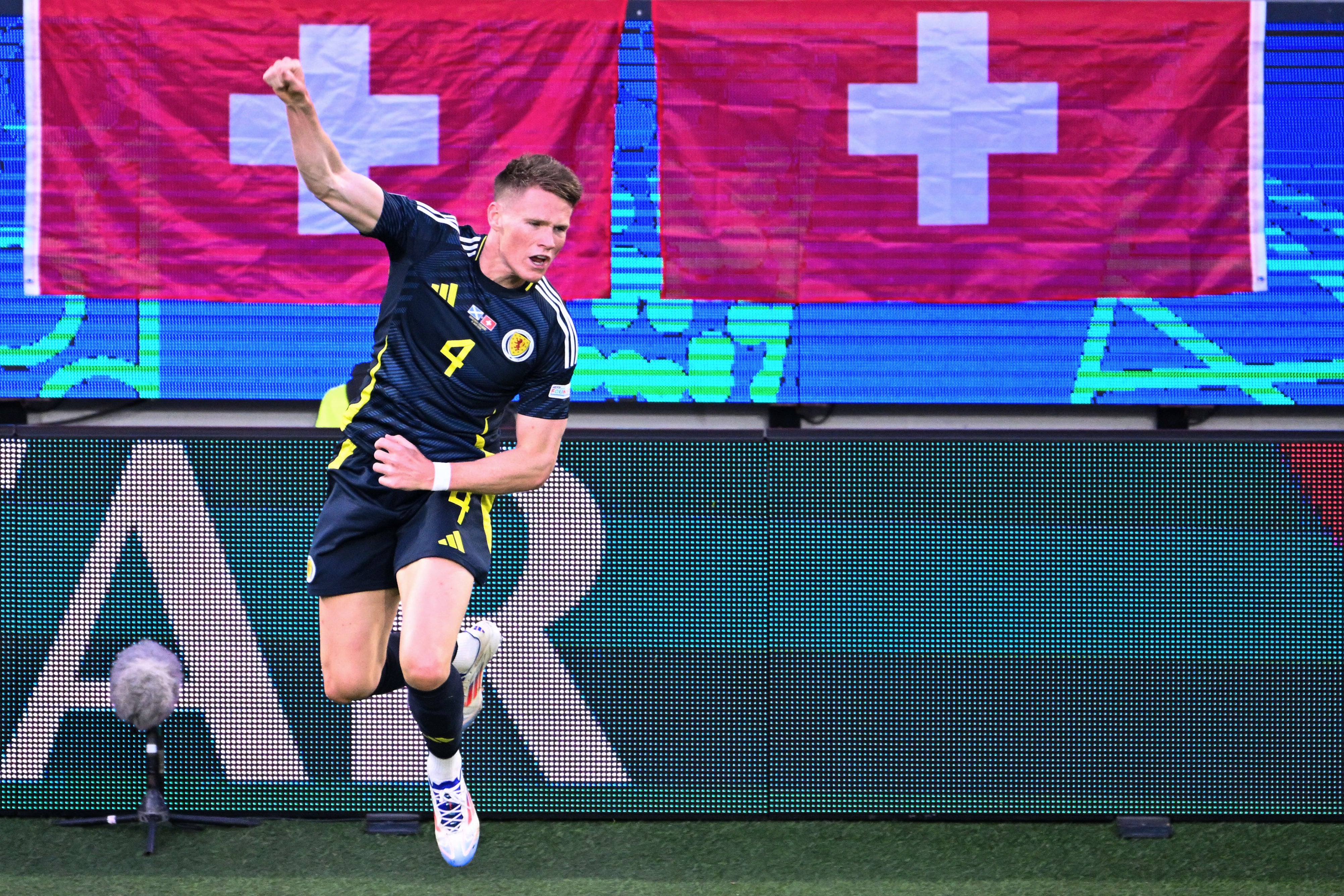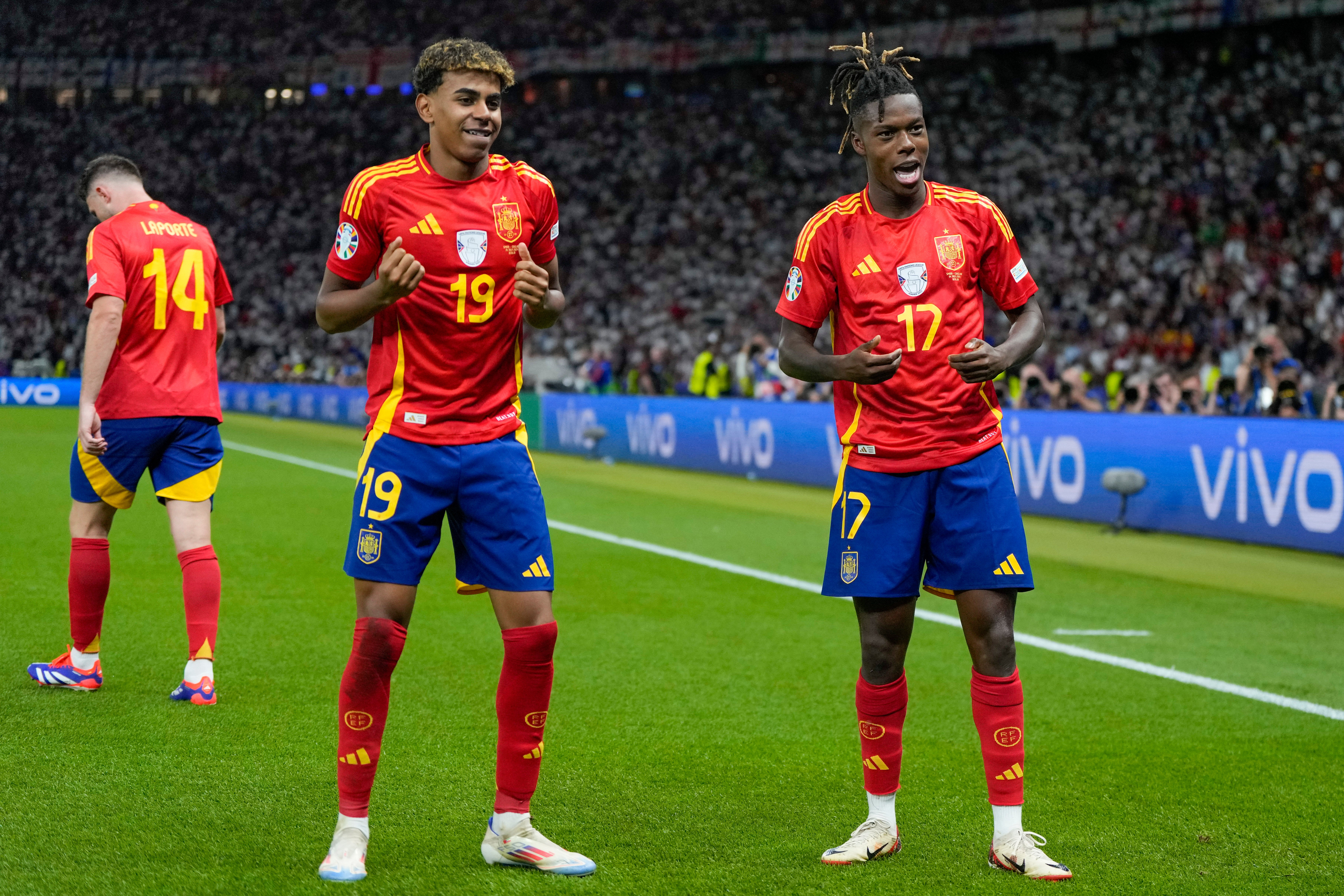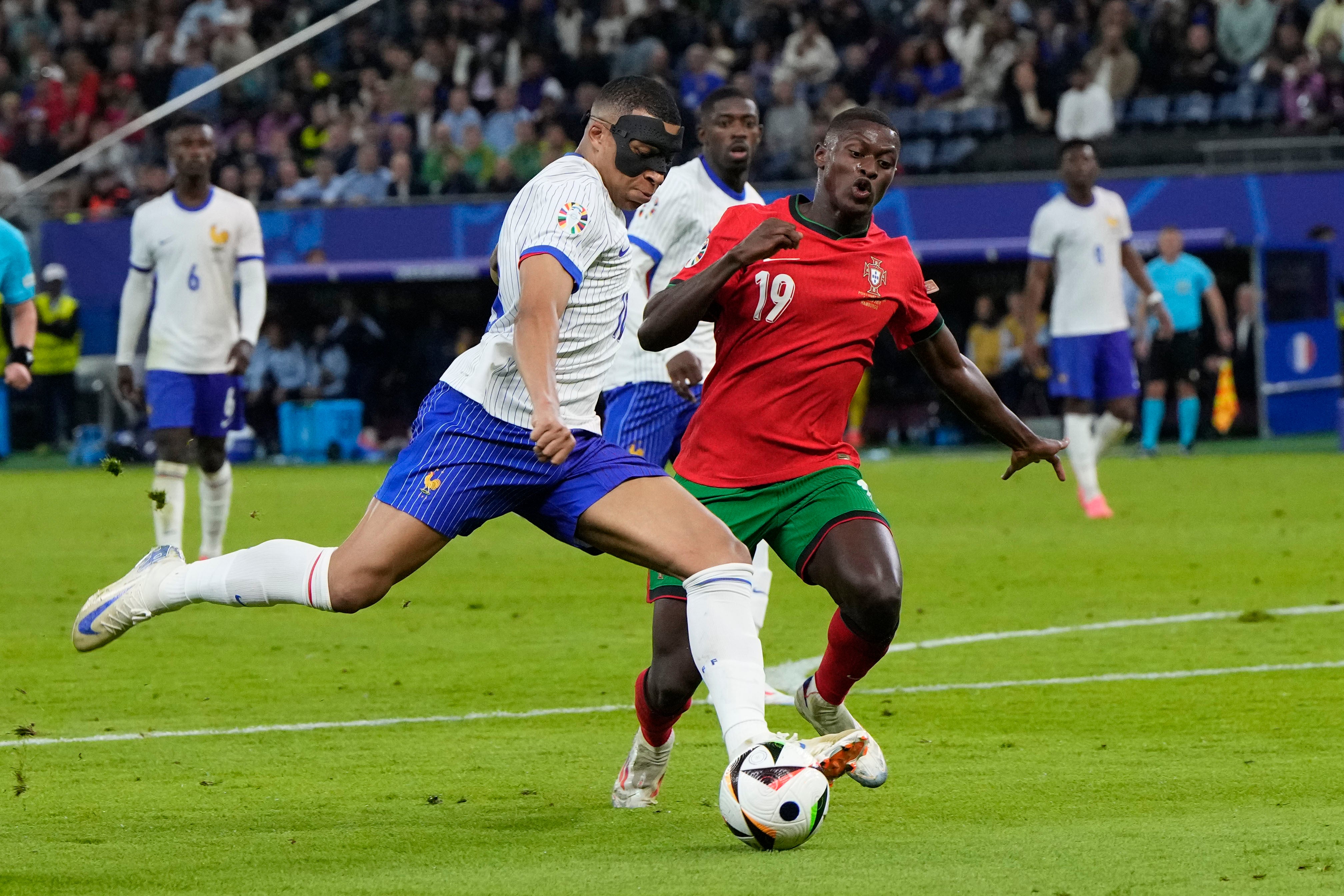The return of the Nations League: Groups, favourites and what’s new in 2024/25 as Spain defend crown
Everything you need to know ahead of the Nations League’s return

Your support helps us to tell the story
From reproductive rights to climate change to Big Tech, The Independent is on the ground when the story is developing. Whether it's investigating the financials of Elon Musk's pro-Trump PAC or producing our latest documentary, 'The A Word', which shines a light on the American women fighting for reproductive rights, we know how important it is to parse out the facts from the messaging.
At such a critical moment in US history, we need reporters on the ground. Your donation allows us to keep sending journalists to speak to both sides of the story.
The Independent is trusted by Americans across the entire political spectrum. And unlike many other quality news outlets, we choose not to lock Americans out of our reporting and analysis with paywalls. We believe quality journalism should be available to everyone, paid for by those who can afford it.
Your support makes all the difference.An expanded Uefa Nations League is upon us as the first international break of the Premier League season ramps up.
The fourth edition of this competition adds an extra knockout round and maintains the jeopardy of promotion and relegation in its mini leagues – a fate England know too well after dropping to League B following a poor string of results in 2022.
Designed to eliminate meaningless international friendlies in favour of pitting similarly ranked nations against each other in a competitive environment, the Nations League has proven a springboard to success for previous winners Portugal, France and Spain.
England’s best result remains the third-place finish they achieved under Gareth Southgate in the 2018/19 inaugural edition. This time out, Lee Carsley’s men will aim for promotion back to the elite.
Groups
This season’s draw threw up some interesting fixtures when it was made back in February. Four leagues were created based on each nation’s results in the last Nations League, with four pots then being established within each league based on the same criteria.
One team from each pot was then drawn into each group within their league to get the final draw:
League A
Group A1: Croatia, Portugal, Poland, Scotland
Group A2: Italy, Belgium, France, Israel
Group A3: Netherlands, Hungary, Germany, Bosnia and Herzegovina
Group A4: Spain, Denmark, Switzerland, Serbia

League B
Group B1: Czechia, Ukraine, Albania, Georgia
Group B2: England, Finland, Republic of Ireland, Greece
Group B3: Austria, Norway, Slovenia, Kazakhstan
Group B4: Wales, Iceland, Montenegro, Turkiye

League C
Group C1: Sweden, Azerbaijan, Slovakia, Estonia
Group C2: Romania, Kosovo, Cyprus, Lithuania*
Group C3: Luxembourg, Bulgaria, Northern Ireland, Belarus
Group C4: Armenia, Faroe Islands, North Macedonia, Latvia
League D
Group D1: Gibraltar, San Marino, Liechtenstein
Group D2: Moldova, Malta, Andorra
What’s new for 2024/25?
Each team will continue to play the others in their group home and away, but qualification for the finals is now slightly different. A new knockout round has been added for March 2025 in a bid to create a greater sense of continuity between the end of the group and the start of the knockouts.
The gap between both stages–which has previously been from November to June–was deemed too long and not a great way to build hype for a competition that already has plenty of doubters.

Here’s how the new system will work:
The League A winners and second-placed teams will enter home and away quarter-finals against each other. Victorious teams will take up the four spots in the finals, while fourth-placed teams in Leagues A and B will be relegated. Those battling in League C have to work a little harder for safety with the two bottom-placed sides plummeting to League D.
On the flipside, all four winners from Leagues B and C will be automatically promoted, with the two League D winners also moving up. Further promotions will be decided via two-legged play-offs, between the third-ranked teams in League A and runners-up in League B, as well as the third-ranked teams in League B and runners-up in League C.
Confused yet? There’s more.
The two best ranked fourth-place teams in League C will meet the two runners-up from League D to decide who enters the next competition in the higher division.
When will the fixtures take place?
The extra knockout stage will only impact a small number of nations, with much of the schedule playing out how we’ve seen before.
- Matchday 1: 5-7 September 2024
- Matchday 2: 8-10 September 2024
- Matchday 3: 10-12 October 2024
- Matchday 4: 13-15 October 2024
- Matchday 5: 14-16 November 2024
- Matchday 6: 17-19 November 2024
- Knockout round play-off draw: November 2024
- Knockout round play-offs: 20-25 March 2025
- League A quarter-finals: 20-25 March 2025
- Final tournament: 4-8 June 2025
Who are the favourites?
Unsurprisingly, Spain enter this year’s proceedings as heavy favourites to defend their crown. They’ve reached two out of three finals so far and beat Croatia on penalties to secure their first Nations League trophy last year.
It’s fair to say Luis de la Fuente’s side have improved massively since then. Spain were scintillating en route to winning Euro 2024, with the emergence of Lamine Yamal and Nico Williams forcing teams to clam up in fear of being ripped apart on the wings.
France may well be the team that can push Spain the furthest. We never truly saw the best of Les Bleus at Euro 2024, with Kylian Mbappe’s broken nose hidden behind a mask amounting to lasting image of their tournament. France showed some excellent defensive qualities in Germany as William Saliba and Jules Kounde stepped up, even if they remained blunt in attack.

Julian Nagelsmann may well feel like the Germans missed out on a wonderful opportunity during their own tournament. He now oversees a new era without Toni Kroos, Ilkay Gundogan, Thomas Muller and Manuel Neuer, four stalwarts of the nation’s success across many years.
This year’s Nations League feels like it will come too soon to push for the title, with Germany more likely to sit with Portugal, Italy and the Netherlands as League A challengers who sit slightly on the outside.



Join our commenting forum
Join thought-provoking conversations, follow other Independent readers and see their replies
Comments